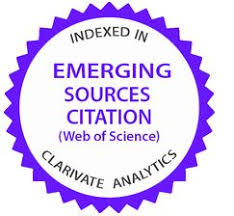Do Internal Auditors Improve Firms’ Working Capital Management?
Abstract
This paper investigates the relationship between internal audit and the working capital management (WCM) of Malaysian public-listed firms. Good WCM is vital as it drives profitability. Anecdotal evidence suggests that the inventory conversion period is the most challenging part of WCM for Malaysian firms. In 2017, around RM71 billion in cash was locked up in working capital and thus suggesting that Malaysian public-listed firms are struggling with WCM. Based on this issue, we are therefore motivated to examine the association between the role of internal audit and WCM in publicly listed firms in Malaysia. Specifically, we would like to examine whether internal audit cost relates to better firms’ WCM. We proxy WCM by the cash conversion cycle (CCC) ratio. With a sample of 309 firm-year observations, we observed a negative and significant relationship between internal audit cost and CCC. The findings suggest that an increase in internal audit cost improves firms’ operational efficiency and effectiveness, hence improving firms' CCC ratios. Furthermore, we find consistent results on the influence of the internal auditor on two of three components of CCC, namely the inventory conversion and the receivables collection periods. Finally, our additional analysis demonstrates that CCC and internal auditing are critical components of firms' performance. By adding the role of internal audit in WCM, this study contributes to a further understanding of the role of internal auditor in agency theory. This study contributes to senior management of publicly listed firms that the cost incurred internal auditing function is an investment that helps improve WCM efficiency.
Keywords: Cash conversion cycle; internal audit investment; WCM, public-listed firms; Malaysia
Full Text:
PDFRefbacks
- There are currently no refbacks.
This journal is indexed by:


![]()
![]()
![]()
ISSN : 2180-3838
e-ISSN : 2716-6060
